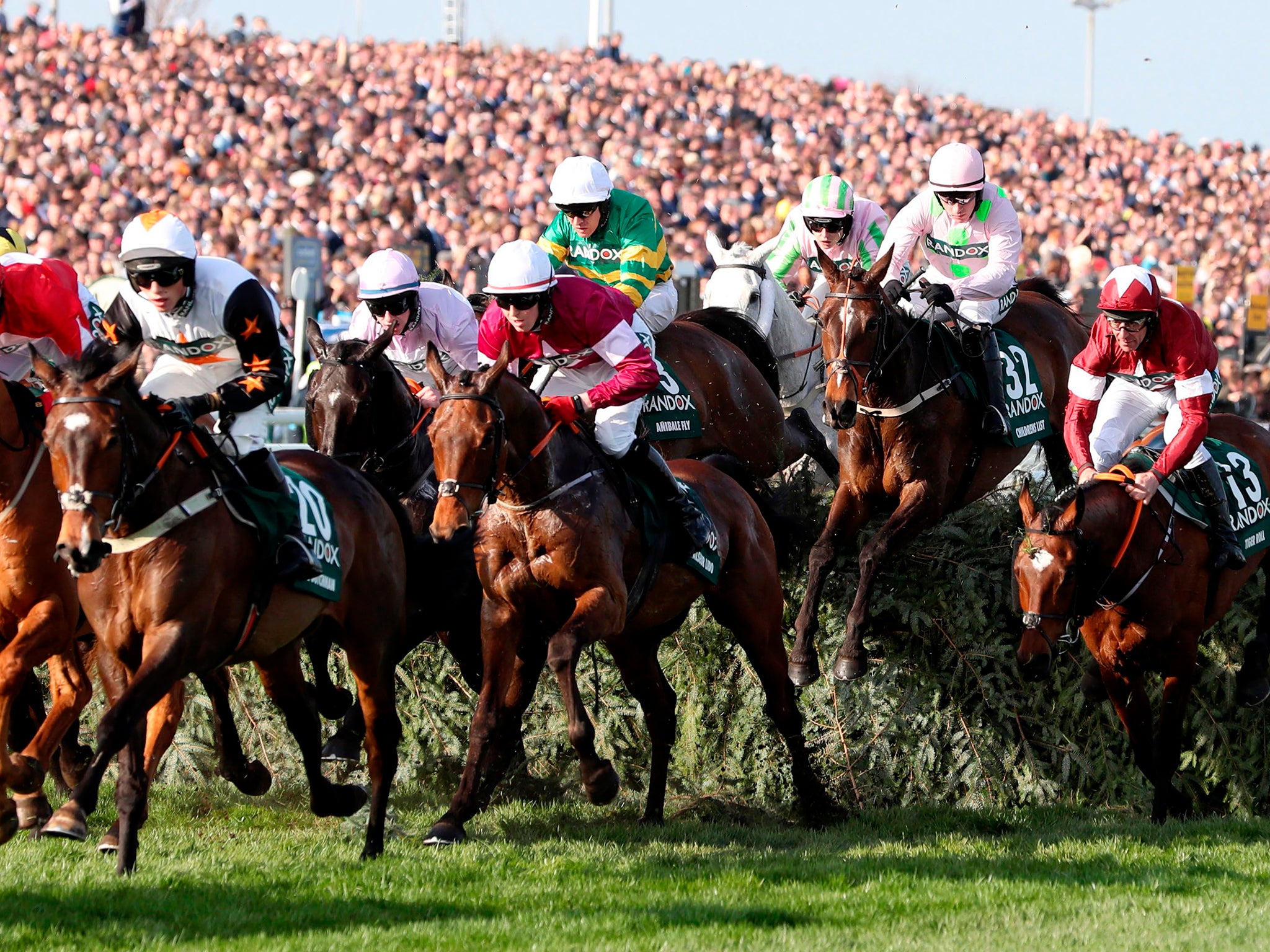Grand National 2018: One horse killed over three-day Aintree meeting as Peta criticise ITV for showing race
The animal welfare charity called on ITV to scrap its coverage of the Grand National after Lilbitluso was destroyed on Thursday following a fall at Aintree
There was one horse fatality across the three-day Grand National meet at Aintree after it was announced that Lilbitluso was destroyed falling a fall on Thursday.
The world’s most famous race, the Grand National, appeared to pass without any deaths this year, although Saint Are did require on-course medical attention after falling at the 15th, yet was able to walk back to the stables for further assessment. An update on Saturday night added that the Tom George-trined horse was "reported to be in a stable condition".
But the festival had already been marred following the sad death of Lilbitluso on Thursday, which came after a fall in the Foxhunters’ Chase.
“While racing in the Randox Foxhunter’s Chase at Aintree, Lilbitluso fell and was quickly attended to by our expert veterinary professionals,” a statement from organisers at Aintree read.
“Sadly the nature of the injury meant it was necessary to put him down humanely on welfare grounds.
“Our sympathies are very much with his owners and the team who cared for him on a daily basis.”
Lilbitluso, a 10-year-old bay gelding trained by John O’Shea, fell at the Canal Turn and was destroyed after the decision was made due to his extensive injuries.
Animal welfare charity Peta were furious after news of the death emerged, and called on broadcasters ITV to remove their planned coverage of the Grand National, which it didn’t do.
“ITV is broadcasting the Grand National, even though this cruel event kills horses. Please send a message to the company’s chair, Sir Peter Bazalgette, and ask him to take the Grand National off our screens,” a Peta statement read.
“At 4.5 miles, the Grand National is one of the longest races in the world – and one of the most controversial.

“The risk factor is what makes it famous, and every year, horses pay with their lives, sustaining horrific and often fatal injuries at notorious fences such as The Chair, Becher’s Brook, and Canal Turn.
“Every time that horses are forced to jump these excessively high obstacles, it puts tremendous pressure on their slender front legs, resulting in broken necks, backs, and legs. Many suffer heart attacks on the course or develop debilitating medical conditions, including bleeding lungs and gastric ulcers.
“When horses get too old or stop performing well enough to be profitable, they’re often “retired” and sent to slaughter. Animal Aid estimates that around 1,000 horses from the racing industry are killed in abattoirs in Britain every year and turned into dog food or cheap meat. Others face horrific live-export journeys to Europe.”
Thirty-seven jockeys also returned unscathed from the 38-jockey field, while Charlie Deutsch was taken to the racecourse medical centre for further assessment after suffering a fall on Houblon Des Obeaux at Becher's Brook. Deutsch, who needed screens to be errected around him while he received treatment, was later cleared as fine.
The death is the first in British racing this month, and comes after six horses were killed during the Cheltenham Festival in March.
Join our commenting forum
Join thought-provoking conversations, follow other Independent readers and see their replies
Comments
Bookmark popover
Removed from bookmarks